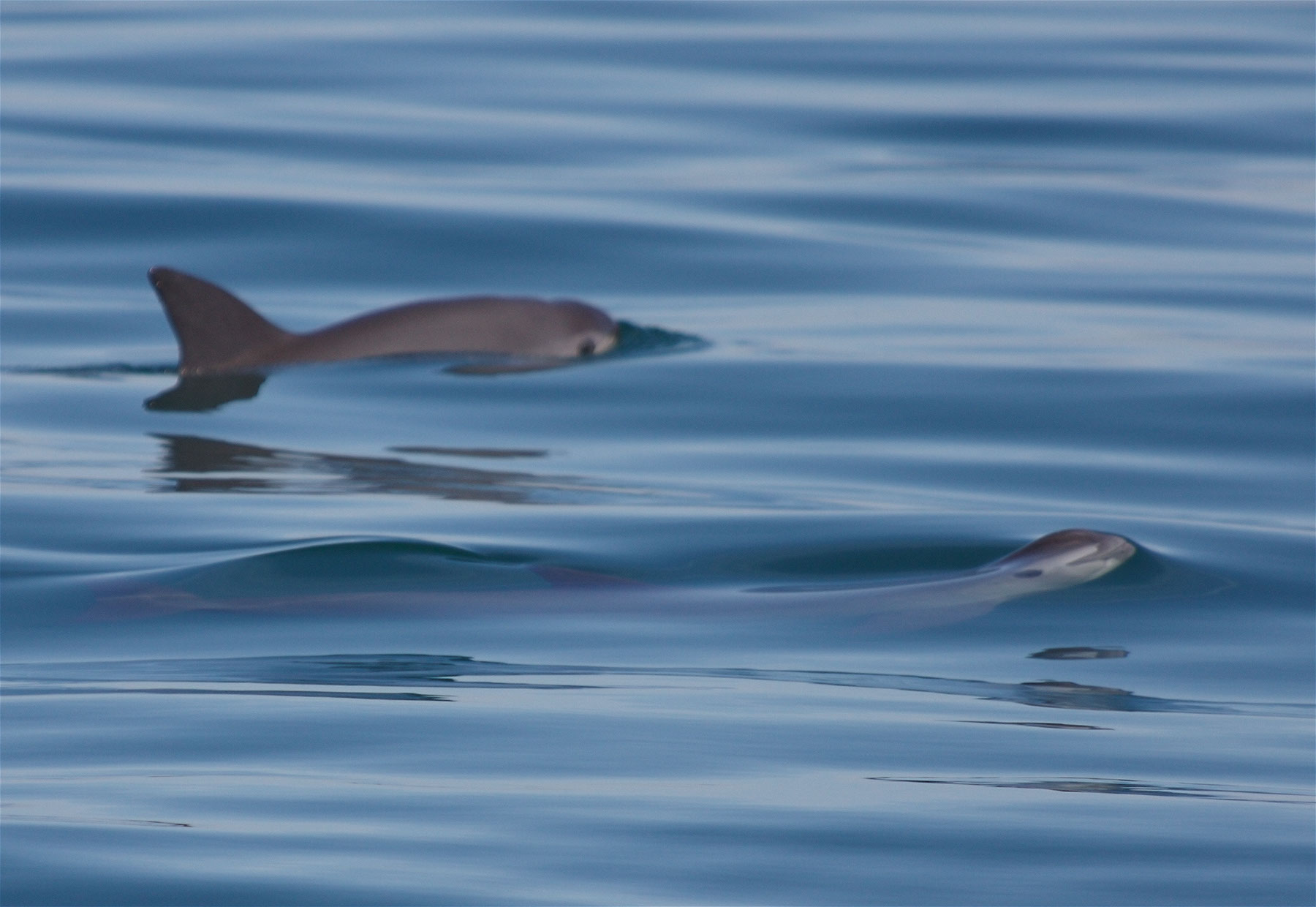This is the first case brought in a tribal court to enforce the rights of nature, and the first rights of nature case brought to enforce Treaty guarantees.
In December 2018, the business committee of the White Earth Band of Ojibwe adopted a “rights of manoomin” tribal law, which recognized wild rice as having the rights to exist, flourish, regenerate, and evolve, as well as inherent rights to restoration, recovery, and preservation.
The rights of manoomin law is the first tribal law to recognize legal rights of a plant or animal species.
This action was brought to enforce both the rights of manoomin (pursuant to the tribal law), as well as Treaty rights held by the tribe and tribal members. The Treaty rights, recognized in the 1837, 1854, and 1855 Treaties with the Chippewa and U.S. government, guaranteed the rights of the tribe to gather wild rice and other aquatic plants from public waters on Treaty lands.
Plaintiffs assert that the diversion of 5 billion gallons of water for an oil pipeline will interfere with both the rights of manoomin, as well as the rights of tribal members to use Treaty lands to hunt, fish, and gather wild rice.
Frank Bibeau, lawyer for the plaintiffs, stated, “The State of Minnesota is ignoring its treaty obligations and tribal laws in allowing the Enbridge corporation to take five billion gallons of water for the construction of the pipeline. This action is about upholding manoomin’s right to exist and flourish as established by tribal law, and about Minnesota’s legal obligations pursuant to the Treaties signed with the Chippewa. All we are demanding is that those Treaties be honored, and manoomin recognized as having the sacred status as recognized by tribal law.”
Mari Margil, the Executive Director of the Center for Democratic and Environmental Rights (CDER), who assisted with the drafting of the tribal law, explained, “This is the second rights of nature enforcement action filed this year, and the first filed by a tribe seeking to enforce those rights in tribal court. These corporate giveaways that destroy ecosystems and species, and violate Treaties, must stop. It’s time to pull the plug on Line 3 and other pipelines across the country that are a clear and present danger to communities and the planet.”
The action was filed in the White Earth Band of Ojibwe’s Tribal Court, and the complaint will be served on Minnesota officials.

by DGR News Service | Mar 28, 2020 | Human Supremacy
Editor’s note: on Thursday news broke that the Environmental Protection Agency in the U.S. is suspending enforcement of regulations due to the coronavirus outbreak.
This comes several weeks after China waived their own environmental regulations in order to re-start their economy as fast as possible, raising fears of a “pollution backlash.”
From a DGR analysis, this is predictable. Within a culture that is dependent on destroying the planet, the needs of the economy—and of the rich—will always be prioritized over the needs of the natural world.
It’s obvious that environmental regulations are failing to protect the planet. That’s partly because, as the Community Environmental Legal Defense Fund (CELDF) often states, regulatory law is written by and for corporations. Nonetheless, regulations do mitigate and slow some of the worst harms. Now, even that flimsy barrier is being dismantled.
We expect this. As Derrick Jensen wrote in Premise 20 of the book Endgame, “Within this culture, economics—not community well-being, not morals, not ethics, not justice, not life itself—drives social decisions.”
Featured image: Public domain photo. Air pollution kills roughly 7 million human beings annually.
‘Holy Crap This Is Insane’: Citing Coronavirus Pandemic, EPA Indefinitely Suspends Environmental Rules
Jake Johnson / Common Dreams
The Environmental Protection Agency, headed by former coal lobbyist Andrew Wheeler, announced on Thursday a sweeping and indefinite suspension of environmental rules amid the worsening coronavirus pandemic, a move green groups warned gives the fossil fuel industry a “green light to pollute with impunity.”
Under the new policy (pdf), which the EPA insisted is temporary while providing no timeframe, big polluters will effectively be trusted to regulate themselves and will not be punished for failing to comply with reporting rules and other requirements. The order—applied retroactively beginning March 13, 2020—requests that companies “act responsibly” to avoid violations.
“EPA is committed to protecting human health and the environment, but recognizes challenges resulting from efforts to protect workers and the public from COVID-19 may directly impact the ability of regulated facilities to meet all federal regulatory requirements,” Wheeler said in a statement. “This temporary policy is designed to provide enforcement discretion under the current, extraordinary conditions, while ensuring facility operations continue to protect human health and the environment.”
Cynthia Giles, former head of the EPA’s Office of Enforcement under the Obama administration, told The Hill that the new policy is “essentially a nationwide waiver of environmental rules for the indefinite future.”
“It tells companies across the country that they will not face enforcement even if they emit unlawful air and water pollution in violation of environmental laws, so long as they claim that those failures are in some way ’caused’ by the virus pandemic,” said Giles. “And it allows them an out on monitoring too, so we may never know how bad the violating pollution was.”
Published under the Creative Commons Attribution-Share Alike 3.0 License.

by Deep Green Resistance News Service | Jan 8, 2019 | Colonialism & Conquest
As militarized RCMP are descending onto unceded Wet’suwet’en to enforce a colonial court injunction, rallies in 30 cities expressing solidarity with the Wet’suwet’en will take place on Tuesday January 8, 2019 across Canada and internationally. The Wet’suwet’en are defending their unceded lands in Northern B.C. from unwanted fracked gas development
Rallies across Canada are being held in Calgary, Chilliwack, Cortes Island, Edmonton, Halifax, Hamilton, Lilooet, Kitchener Waterloo, Mi’kma’ki, Montreal, Nelson, North Bay, Ottawa, Prince George, Regina, Rexton, Saskatoon, Six Nations, Thunder Bay, Toronto, Vancouver, Victoria, Winnipeg, and White Horse. Rallies will take place internationally in Bellingham, Flagstaff, Milan, San Francisco, and Seattle.
Details for the rallies can be found at: https://www.facebook.com/events/2225649537692362/ and on Tuesday January 8, 2019 photos and video will be available through #wetsuwetenstrong #notrespass #thetimeisnow.
According to rally organizers, “We oppose the use of legal injunctions, police forces, and criminalizing state tactics against the Wet’suwet’en asserting their own laws on their own lands. This is a historic moment when the federal and provincial governments can choose to follow their stated principles of reconciliation, or respond by perpetuating colonial theft and violence in Canada.”
Coastal GasLink, a project of TransCanada Corporation, has been constructing a 670-kilometer fracked gas pipeline that will carry fracked gas from Dawson Creek, B.C. to the coastal town of Kitimat, where LNG Canada’s processing plant would be located. LNG Canada is the single largest private sector investment in Canadian history, with support from the Federal Liberal government and tax breaks from the NDP B.C. provincial government.
Under ‘Anuc niwh’it’en (Wet’suwet’en law) all five clans of the Wet’suwet’en have unanimously opposed all pipeline proposals and have not provided free, prior, and informed consent to Coastal Gaslink/TransCanada to do work on Wet’suwet’en lands. The 22,000 square km of Wet’suwet’en Territory is divided into 5 clans and 13 house groups. Each clan within the Wet’suwet’en Nation has full jurisdiction under their law to control access to their territory.
According to the Wet’suwet’en Access Point on Gitdumden territory, who issued the call for international solidarity, “All Wet’suwet’en Clans have rejected the Coastal GasLink fracked gas pipeline because this is our home. Our medicines, our berries, our food, the animals, our water, our culture are all here since time immemorial. We are obligated to protect our ways of life for our babies unborn.”
The Unist’ot’en Camp is a permanent Indigenous re-occupation of Wet’suwet’en land that sits on Gilsteyu Dark House Territory. The Wet’suwet’en Access Point on Gitdumden territory was announced in the Wet’suwet’en feast hall in December 2018 with the support of all chiefs present to affirm that the Unist’ot’en Clan are not alone.
On December 2018, the B.C. Supreme Court issued a court injunction that authorizes the RCMP to forcibly clear a path through the Wet’suwet’en Access Point on Gitdumden territory and the Unist’ot’en homestead on Unist’ot’en territory. This is despite the fact that the Supreme Court of Canada ruled in the landmark 1997 Delgamuukw-Gisday’wa case that the Wet’suwet’en, as represented by their hereditary leaders, had not given up rights and title to their 22,000 square kilometers of land. Members of the RCMP met with Hereditary Chiefs in January 2019 and indicated that specially trained tactical forces will soon be deployed.
“Canada knows that its own actions are illegal,” states the Wet’suwet’en Access Point on Gitdumden territory. “The Wet’suwet’en chiefs have maintained their use and occupancy of their lands and hereditary governance system to this date despite generations of legislative policies that aim to remove us from this land, assimilate our people, and ban our governing system. The hereditary chiefs of the Wet’suwet’en and the land defenders holding the front lines have no intention of allowing Wet’suwet’en sovereignty to be violated.”
Support has been growing for the Wet’suwet’en with statements issued by national and international organizations such as 350 dot org, Heiltsuk Nation, Idle No More, Canadian Centre for Policy Alternatives, Canadian Union of Postal Workers, Civil Liberties Defense Center, Dogwood BC, Greenpeace Canada, Namgis First Nation, Secwepemc Women’s Warrior Society, and Union of B.C Indian Chiefs.
The rally organizers further state, “We demand that the provincial and federal government uphold their responsibilities to the United Nations Declaration on the Rights of Indigenous Peoples by revoking the permits for this fracked gas pipeline that does not have consent from any Wet’suwet’en Clan. The federal government, provincial government, Coastal GasLink/TransCanada, and the RCMP do not have jurisdiction on Wet’suwet’en land.”

by Deep Green Resistance News Service | Dec 27, 2017 | Lobbying
Suit Seeks Ban on Mexican Seafood Imports to Prevent Extinction of Vaquita
by Center for Biological Diversity
WASHINGTON— Conservation groups filed a lawsuit against the Trump administration today for failing to respond to their emergency request to ban certain seafood imports from Mexico’s Gulf of California in order to save the critically endangered vaquita porpoise from extinction.
Fewer than 30 vaquita now remain on the planet after the population suffered a 95 percent decline over the past 20 years. Entanglement in fishing gillnets is the sole threat to the species’ survival. Scientists predict that the vaquita will be extinct by 2019 if fishing practices remain unchanged.
In May the groups filed a formal legal petition requesting that the U.S. government ban the import of seafood from Mexico that was caught in the vaquita’s habitat using deadly gillnets. Today’s lawsuit seeks an immediate response to that emergency petition. A U.S. ban on lucrative Mexican seafood imports will pressure Mexico to fully ban gillnets and strengthen much-needed enforcement.
“We’ve asked politely that the U.S. government take action to save the vaquita by banning Mexican seafood imports,” said Sarah Uhlemann, international program director at the Center for Biological Diversity. “But the clock is running out for the vaquita and it’s time to demand action. The Trump administration must use the strongest possible pressure quickly to force Mexico’s hand in protecting the vaquita before it’s too late.”
Mexico has failed to permanently ban all gillnets in the vaquita’s habitat, despite repeated recommendations by scientists and evidence that the use of gillnets by any fishery — in or adjacent to the vaquita’s range — will undeniably lead to the species’ extinction.
“We can’t leave any tool unused that will help get the vaquita’s killer — gillnets — out of their habitat,” said Zak Smith, senior attorney with the Natural Resources Defense Council’s Marine Mammal Protection Project. “The fishing industry is driving the vaquita’s extinction — and pressure on that group to fix their practices may be the most important way to save these porpoises. The United States must immediately ban the import of any seafood from Mexico that is contributing to the vaquita’s extinction.”
The U.S. Marine Mammal Protection Act requires the U.S. government to ban seafood imports from fisheries that kill marine mammals, including the vaquita, in excess of U.S. standards for marine mammal bycatch (the accidental entanglement and deaths of marine mammals in fishing gear). If American standards were applied to Mexican fishermen operating in and near the vaquita’s habitat, fishermen would be prohibited from contributing to the bycatch of any vaquita because it is gravely endangered and losing its population at a rate of nearly 40 percent each year.
“Mexico has known for decades what must be done to save the vaquita, yet has not found the political will to stop the species from plummeting toward extinction,” said Kate O’Connell, marine wildlife consultant with the Animal Welfare Institute. “If the U.S. government does not step up and use its laws to compel the Mexican government to save the species by banning certain seafood imports, it too will be complicit in the loss of the vaquita.”
In 2016, following a legal petition by conservation groups, the Service adopted new rules to enforce the Marine Mammal Protection Act’s import provision. Those rules will be fully applicable worldwide by 2022. Today’s lawsuit seeks emergency application of the rules to save the vaquita.




